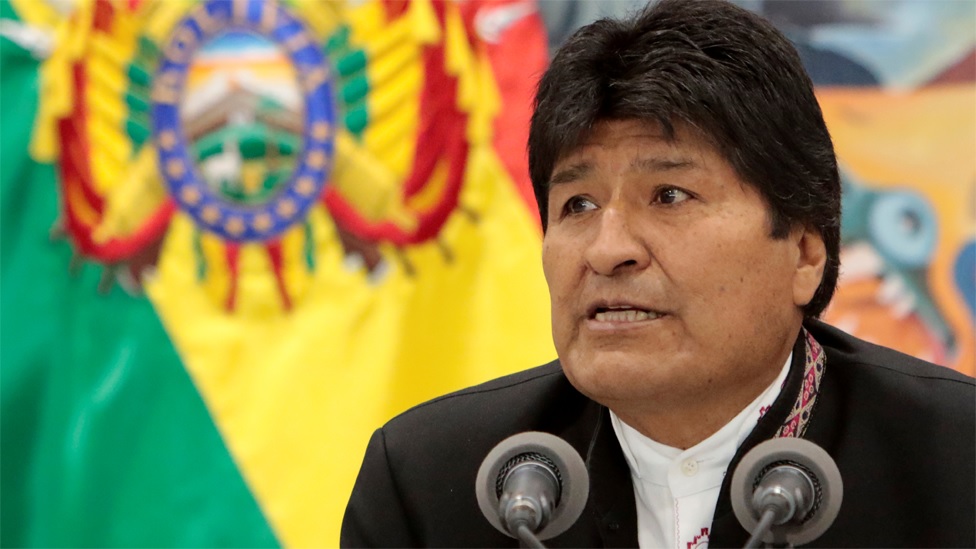By Mauricio Rios Garcia
Bolivia’s international politics since Evo Morales assumed the country’s highest office in 2006 until today, has never had anything to brag about. Furthermore, it has been truly disastrous.
Not a single international trial is remembered that the Plurinational State has won, and now with Arce Catacora as president, the case over the waters of the Silala river for which Chile has been challenged to settle the matter before the International Court of Justice (ICJ ) in The Hague since 2016, is no different.
When the cocalero boss was president of Bolivia, he carried out a series of lawsuits for different reasons, among which the expropriations (wrongly called “nationalizations”) of foreign companies, or having decided to undertake a judicial maneuver with the historic maritime conflict with Chile before The Hague, and which it lost resoundingly in 2018: by 12 votes to 3, the ICJ determined that “the Republic of Chile did not contract the obligation to negotiate sovereign access to the sea for the Plurinational State of Bolivia”.

At that time, Morales decided to attend the announcement of the ruling in the Netherlands together with a large delegation from his government and international legal advisers, and as the determinations were read, his face gradually became disfigured.
The problem was that the trial itself was poorly planned from the beginning, with the help and advice -by the way- of former presidents Carlos Mesa and Rodríguez Veltzé, who have never hesitated to oxygenate the political project of the cocalero boss every time that he needed it.
Well, after a six-year process, now something comparable has just happened. After Morales decided to politicize another historical conflict with Chile before The Hague, the ICJ has just ruled in favor of Chile determining that both parties previously recognized that the waters of the Silala river are international, and that, therefore, its use is subject to the international customary law, there is no point even in ruling on it.
This ruling has not come as a surprise to Bolivia, much less to the citizens of Potosí and the communities surrounding Silala.
Ricardo Ramos, president of the Potosinista Civic Committee, stated a day before the ruling: “The irresponsibility of the former president, Mr. Evo Morales, has caused the Chilean State to sue us and we are in a very complicated situation. The counterclaim, the acceptance of the claim, and above all the trial of our sovereignty, were poorly raised. The only person responsible is Mr. Evo Morales for his incapacity and his betrayal of the country for having once again delivered our strategic resources”.
It happens that, in addition, it was Morales himself who recognized in 2018, in full court, that part of the course of the Silala waters were international.
This was something that Karen Longaric, former Minister of Foreign Affairs during the government of former President Jeanine Áñez (2019-2020), also warned in February 2020: “The MAS government lost the maritime claim before the ICJ, (which should never have have filed).” She later affirmed that a part of the Silala water flows naturally to Chile. “I will gladly explain to Deputy Borda the consequences of the improvised foreign policy of the MAS”.
So, clearly, what now corresponds to the unquestionable defeat, is to take Evo Morales and the team that faced the defense of Silala, to assume a trial of responsibilities, as affirmed by the former diplomat and current opposition deputy from La Paz, Gustavo Aliaga.
Similarly, Lissa Claros, a deputy from San Luis Potosí, assured that she will carry out legal proceedings against Morales, his adviser Rodríguez Veltzé and the judicial team in charge: “They have asked us to take action against those responsible, in case the demand is negative, we are working on that. If the sentence is negative, a trial of responsibilities against Evo Morales and those who were part of this process corresponds.”
For his part – who knows if by way of consolation – Rodríguez Veltzé wrote on his social networks before the clearly unfavorable ruling for Bolivia, which aspired to be redeemed if Bolivia’s sovereignty over Silala was recognized: “Silala: ICJ recognizes coincidences in application of International Law, scientific studies and encourages agreements. Neither winners nor losers, to improve policies on transboundary water resources.”
In short, this is just one more case of countless others about the failure of State policies during the government of Morales, the Movimiento al Socialismo, and now also of Arce Catacora and David Choquehuanca (former chancellor of the cocalero chief), who have not yet spoken on the matter.
It is to be expected that the legal actions continue until the responsibilities trials announced by the opposition in the country continue, and account for the responsibilities of each one of its actors in as much detail as possible.
With information from La Gaceta

